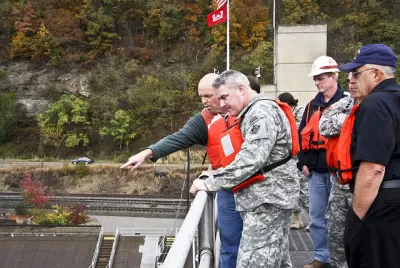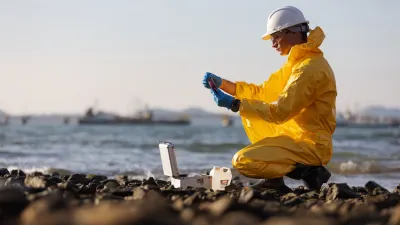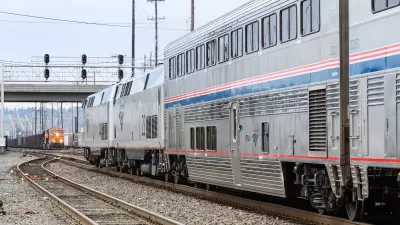Inland waterways have capacity to spare to help deal with an expected surge in freight movement around the country. Some TLC will be required to maximize that potential, however.

"As projections show a steep increase in freight movement over the next few decades, stakeholders representing inland waterway transportation said they are well-positioned to handle the growing demand but that the federal government needs to help them invest in the projects that will keep things running smoothly," reports Alexander Laska.
Laska is sharing information presented at the TRB Annual Meeting session on the subject. The key takeaway from the session: freight tonnage is growing quickly—expected to rise 40 percent by 2045—but freight movement on inland waterways has been declining and is operating under capacity.
The session also focused on the federal investments that could maximize the opportunity for inland waterways to remove some of the anticipated stress on the national highway system.
FULL STORY: Inland Waterways Stakeholders Highlight Federal Funding Challenges

Planetizen Federal Action Tracker
A weekly monitor of how Trump’s orders and actions are impacting planners and planning in America.

USGS Water Science Centers Targeted for Closure
If their work is suspended, states could lose a valuable resource for monitoring, understanding, and managing water resources.

Congress Moves to End Reconnecting Communities and Related Grants
The House Transportation and Infrastructure Committee moved to rescind funding for the Neighborhood Equity and Access program, which funds highway removals, freeway caps, transit projects, pedestrian infrastructure, and more.

Poor Conditions in Mobile Home Parks Put Residents at Risk
Failing infrastructure, poor water and air quality, and predatory owners endanger the health of manufactured home residents, many of whom are elderly and low-income.

How Complete Streets Stands to Lose in the FY26 ‘Skinny Budget’
The President’s proposed budget could cut key resources for active transportation, public transit, and road safety programs.

Dairy Queen and Rural Third Places
Dozens of Dairy Queen restaurants across Texas are closing, taking a critical community space with them.
Urban Design for Planners 1: Software Tools
This six-course series explores essential urban design concepts using open source software and equips planners with the tools they need to participate fully in the urban design process.
Planning for Universal Design
Learn the tools for implementing Universal Design in planning regulations.
City of Moorpark
City of Tustin
Tyler Technologies
City of Astoria
Transportation Research & Education Center (TREC) at Portland State University
Chaddick Institute at DePaul University
Regional Transportation Commission of Southern Nevada
Toledo-Lucas County Plan Commissions




























